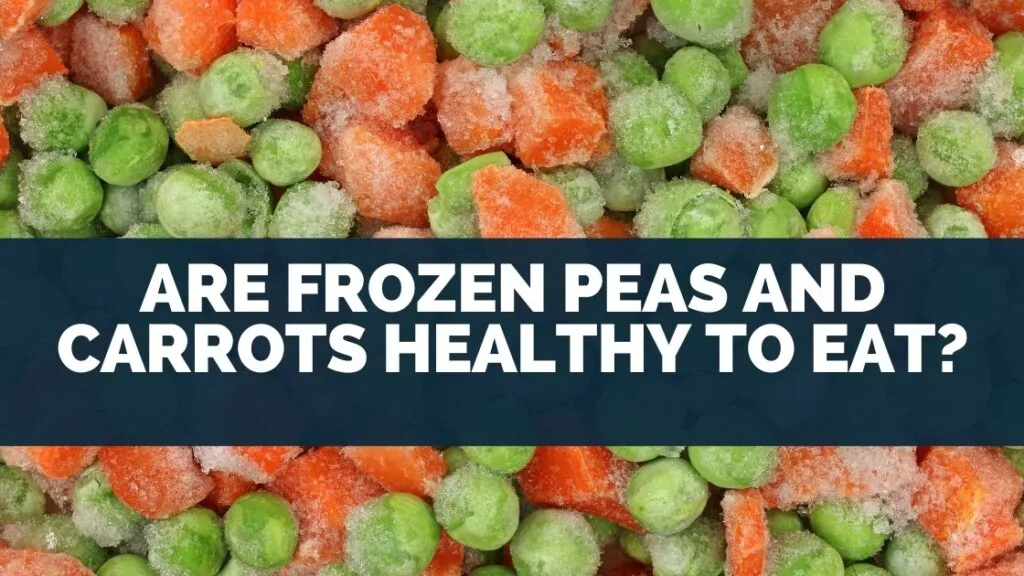
Are you looking for a quick and healthy snack?
Are you struggling to find something that fits into your diet plan? Frozen peas and carrots are here!
They’re not as exciting as some other snacks, but they’re healthier than most. In this blog post, we’ll take a closer look at the nutritional value of these two veggies and see just how good they are for you. Stay tuned!
The frozen food industry is increasing, with frozen peas and carrots being among some of the most popular frozen options. This article will give you a few tips to guide you in choosing frozen vegetables, as well as giving you nutrition information.
Table of Contents
So Exactly What Are Frozen Veggies?
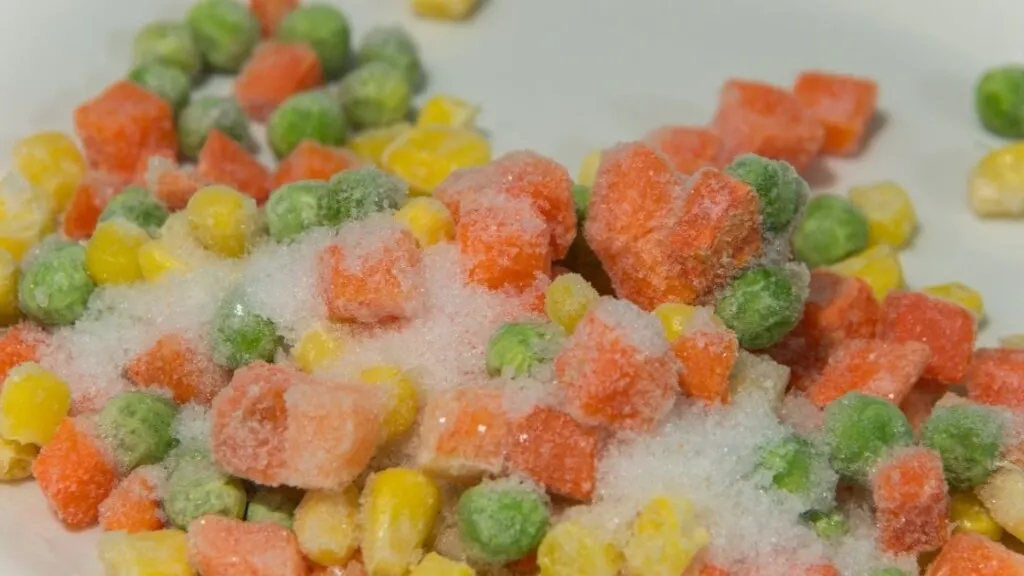
Frozen vegetables are usually harvested fully ripe, so they contain more flavor, have firmer flesh which is more nutritious. Once frozen, most nutrients are sealed in, so frozen vegetables retain higher nutrient levels than fresh vegetables.
Most frozen vegetables are pre-cooked or blanched before being frozen.
This means they only need heating through before serving. Frozen vegetables are available all year during spring and summer when fresh vegetables are less available.
How To Choose Best Frozen Vegetables?
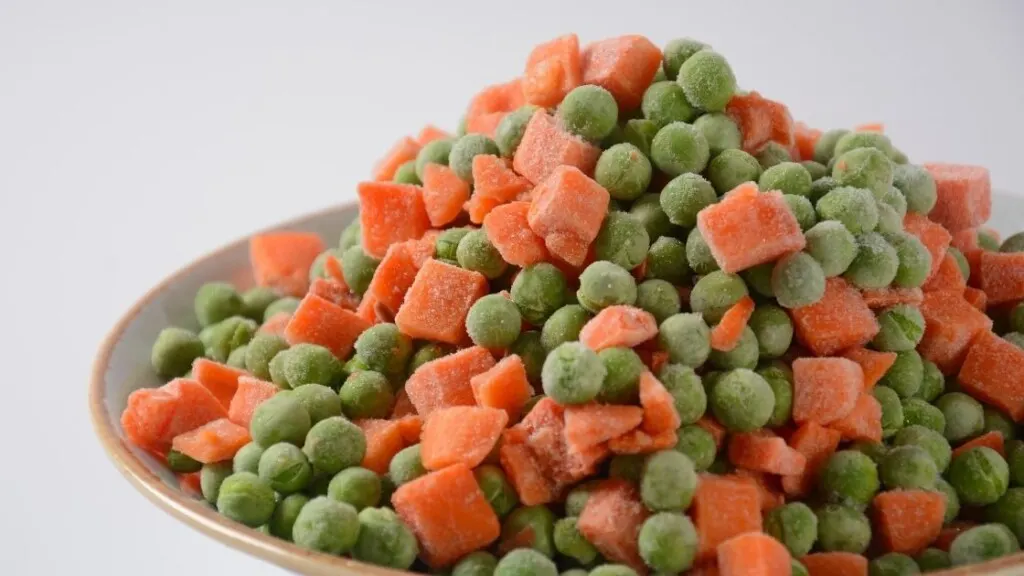
In general, frozen vegetables can last from about six months to 1 year in your freezer, depending on the type you buy and how well you eat them during that time. This is much longer than the typical 1-3 months that frozen fruits tend to last.
Frozen vegetables are a tasty and healthy option if they are not overcooked or frozen for too long.
If you are looking to buy frozen veggies, then look for frozen veggies that have a bright color, with no frozen or dry spots, which indicate a breakdown in quality. Check the product code on the back of the pack and try to choose frozen vegies with a shorter time listed so you can be sure they will only have been frozen shortly after harvesting.
Frozen Peas and Carrots – Is It a Good Combination?
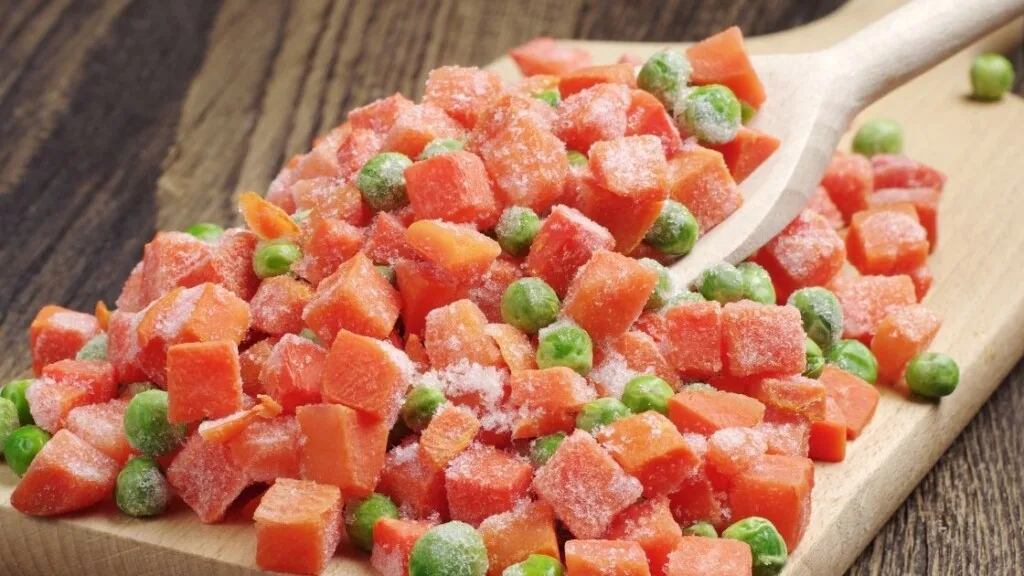
You can choose frozen veggies to save time and effort as they only require heating through before serving, or frozen veggies can be used as a quick snack or meal ingredient.
Frozen Peas Facts
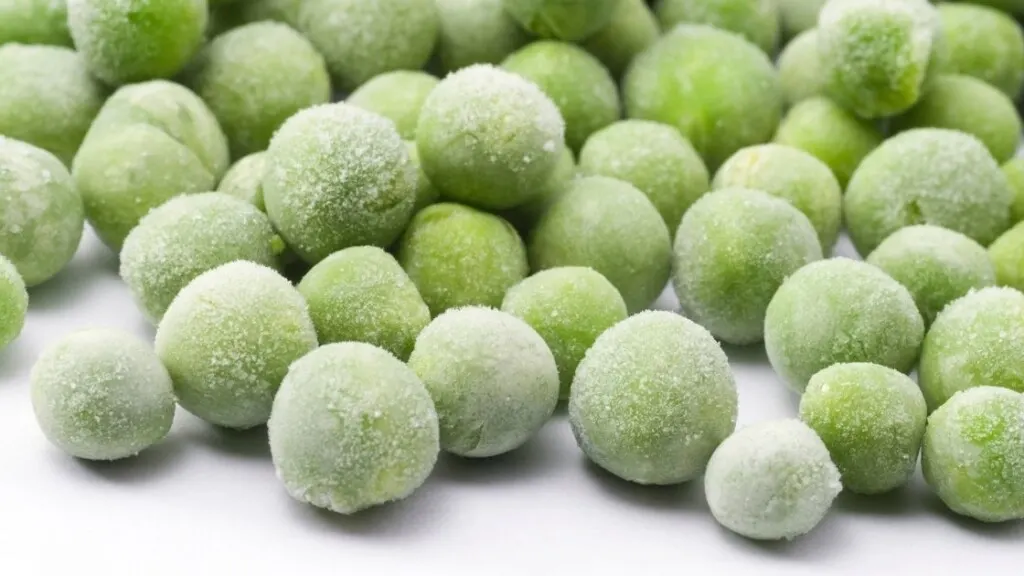
Peas are an excellent source of minerals like iron, zinc, calcium, manganese, magnesium, potassium, phosphorus, copper, and selenium. They also contain vitamin K, pantothenic acid, Vitamin B6, folate, and Vitamin C.
Health Benefits:
- Frozen peas are a good source of fiber, vitamins, and minerals. They are also a good source of plant-based protein.
- You can enjoy the occasional frozen pea to maintain your weight, though it’s not for everyone. Frozen peas are high in fiber and low on calories, making them a healthy substitute when you need something that doesn’t have much flavor but still fills you up!
- Frozen peas are a healthy and delicious option for people who want to eat more vegetables. They’re so easy; you can just throw them in your dish when cooking!
- Frozen peas are a great way to get your daily dose of vitamin A. These little guys pack more than 20 times the amount an adult needs! Along with this fantastic nutrient comes even more health benefits like helping prevent cancerous cells from forming or DNA damage caused by free radicals (harmful molecules).
How to Freeze Peas
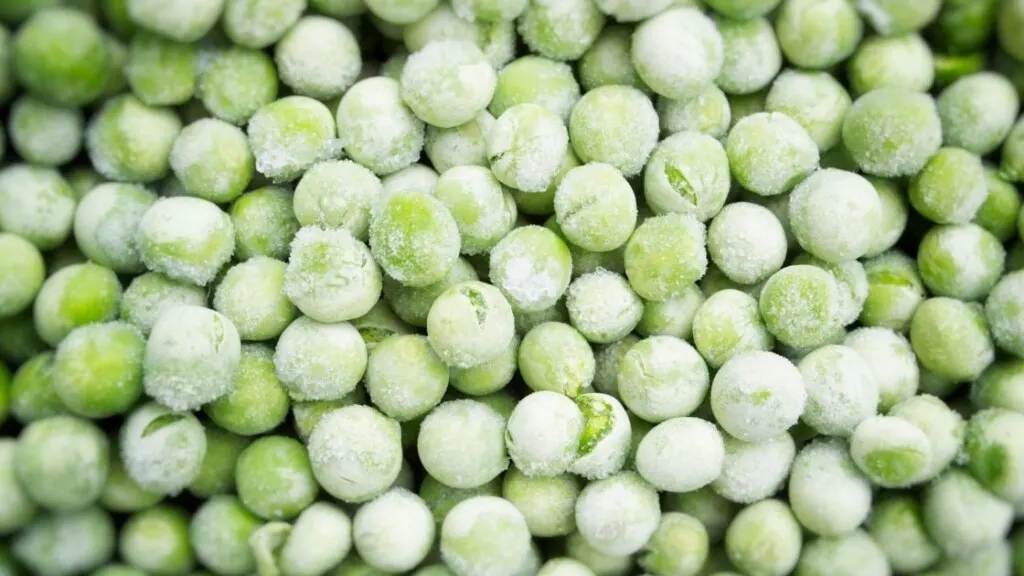
To freeze peas, you will need:
- A large pot of boiling water
- A bowl of ice water
- A colander
- Plastic freezer bags
- Ziploc freezer containers
- Labeling stickers
- A permanent marker
Directions:
- Fill a large pot with boiling water and cook the peas for 2 minutes.
- Remove the peas from the boiling water and place them in a bowl of ice water.
- Drain the peas in a colander.
- Place the peas in a plastic freezer bag. Vacuum seal the bag if desired. 5. Place the bag in a Ziploc freezer container. Freeze for up to 6 months.
- Place the date and contents of each container on a label sticker. 7. Use a permanent marker to write the date and contents on the container’s lid.
- Place the container in the freezer with its corresponding bag of peas inside.
- When you’re ready to eat your peas, take out as much as you need and let thaw in the refrigerator.
Frozen Carrots
Frozen carrots are a healthy and convenient way to add vegetables to your diet. They are high in fiber, vitamin A, and beta-carotene and are a great source of antioxidants. As a bonus, they are also relatively inexpensive at the grocery store.
Benefits of Frozen carrots
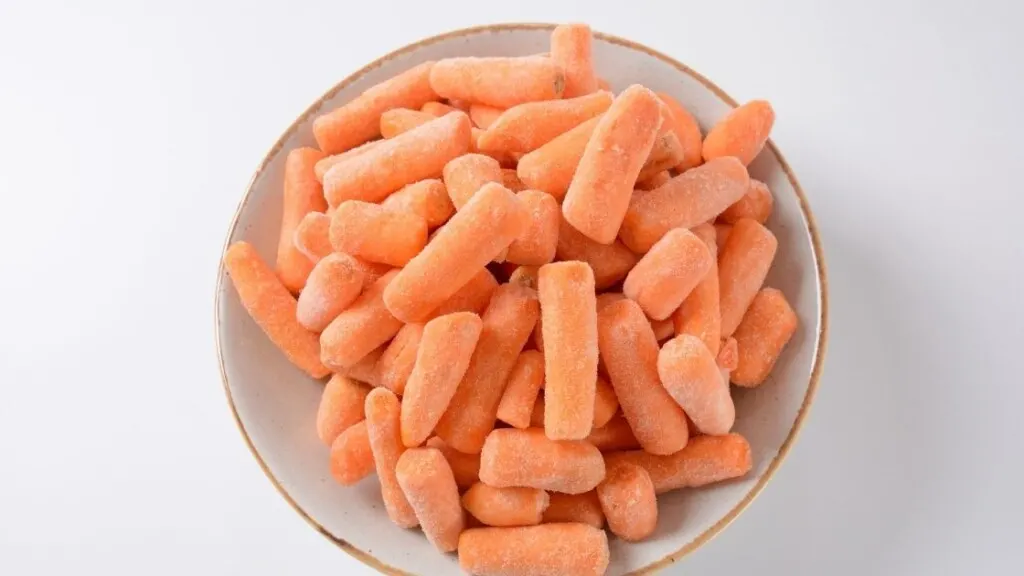
The benefits of eating frozen carrots are Nemours some are discussed below:
- Frozen carrots are a quick and easy way to get some energy back when you’re feeling tired. They contain vitamin A which helps keep your skin healthy as well!
- Vitamin K is a healthy supplement found in many foods, but there’s one food you might not know about- frozen carrots! Vitamin K helps reduce heart diseases. It has been shown to have benefits for both children and adults.
- They’re high in fiber is a significant perk of eating frozen Carrots. A single serving has about 8 grams!
- There aren’t many vegetables that offer as much versatility to your cooking routine. Frozen carrots are perfect for adding to any recipe or dish you’re making, so it’s easy enough just cook them up like regular old fresh ones!
How to Freeze Carrots?
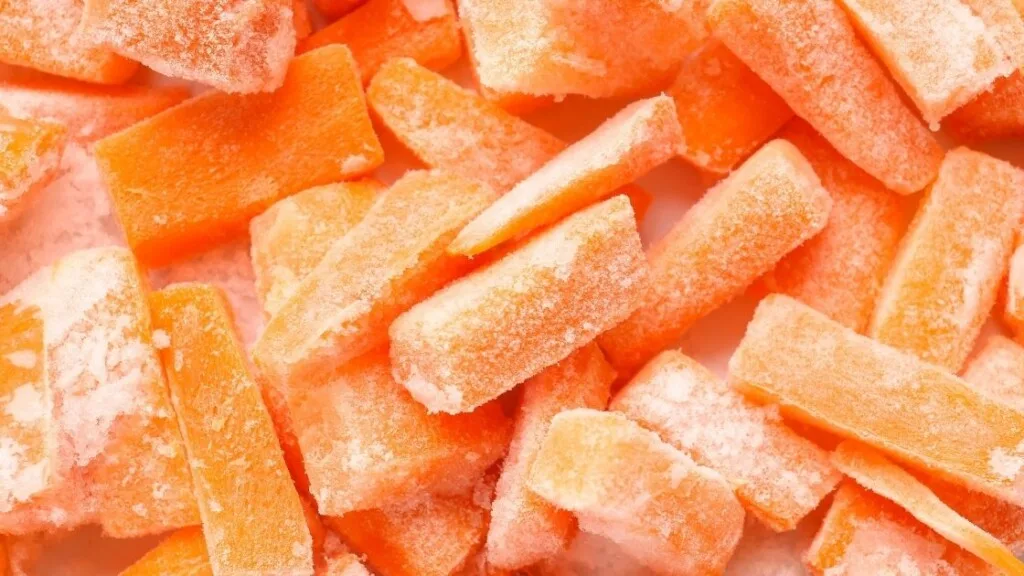
Read on for instructions on freezing carrots.
What You’ll Need:
- raw carrots
- freezer bags, plastic containers, or vacuum sealer, if available
Step 1 – Prepare the Carrots for Freezing
Gather your ingredients and supplies. You will need raw carrots. If desired, use a peeler to remove the outer skin of the carrots before placing them in your storage container. Cut off any green portions of the carrot.
Step 2 – Freeze the Carrots
You can freeze carrots whole or in slices, or even grate them first and then freeze them. If you decide to slice your carrots before freezing them, remember that they will fall apart more easily after thawing (although they are still safe to eat). Also, if you choose to grate your carrots, remember that freezing will change the texture of your finished product.
Conclusion: Frozen Peas and Carrots
Now that you know how easy it is to freeze peas and carrots, are you convinced of the health benefits?
Frozen peas and carrots are a great way to have fresh vegetables on hand year-round, so don’t let the summer sun go down before freezing your supply of peas and carrots! If so, try freezing some for yourself. You can also find more information on this topic here.
We hope this has been helpful!

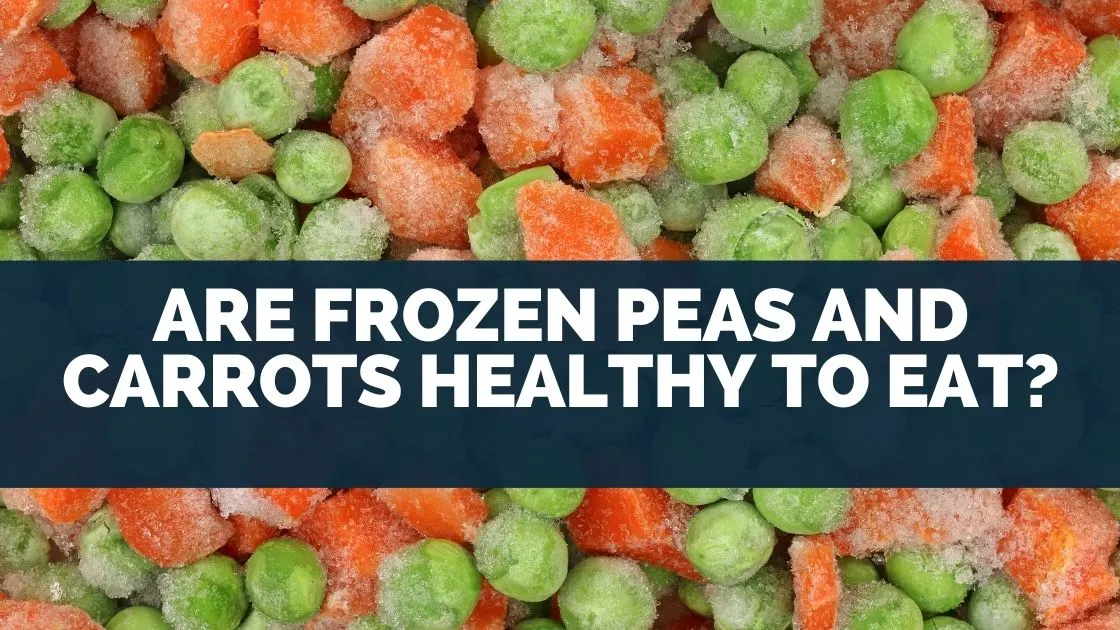
Leave a comment